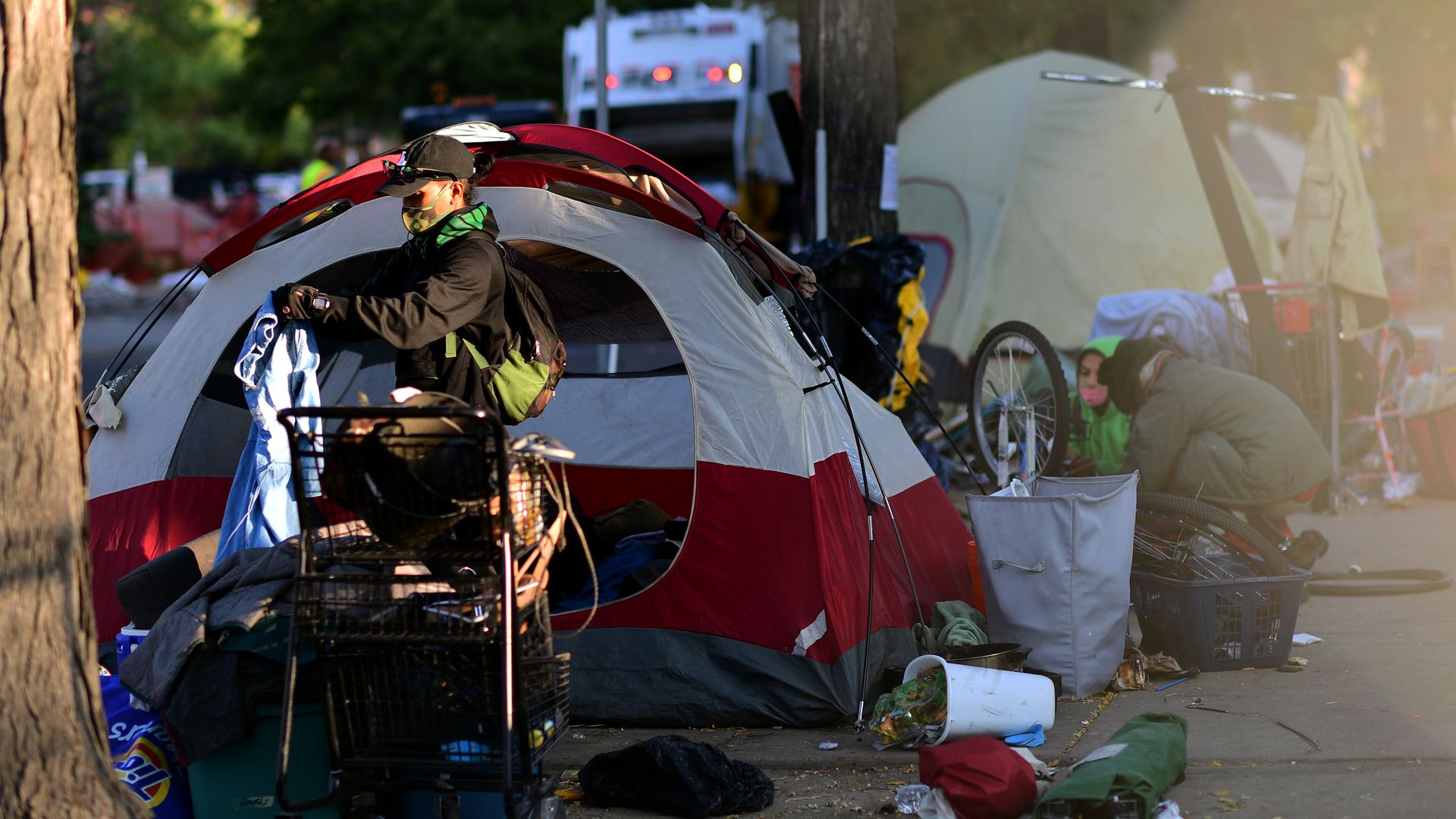First-time homelessness doubles in metro Denver during the pandemic
Add Axios as your preferred source to
see more of our stories on Google.

People experiencing homelessness near downtown Denver in 2020. Photo: Hyoung Chang/The Denver Post via Getty Images
The number of people experiencing homelessness for the first time in metro Denver doubled between 2020 and 2021, a new report shows.
- The data, released late last week by the Metro Denver Homeless Initiative, reveals about 25% of the city's homeless population was living outdoors.
Why it matters: The surge in newly homeless people makes Denver's homeless crisis even more challenging to solve.
Details: The figures back service providers, who for months have warned that the pandemic has exacerbated homelessness.
- 32,233 people accessed services related to homelessness between July 1, 2020 and June 30, 2021.
- Black, indigenous and other people of color were disproportionately represented among the unsheltered population.
Meanwhile, the number of unhoused people dying in metro Denver hit a six-year high in 2021, according to a report released earlier this month from the Colorado Coalition for the Homeless.
What they're saying: Denver Mayor Michael Hancock called homelessness "the most complicated issue [he's] ever dealt with," in an interview with The Hill late last week.
- "We have to fix the fact that there's not enough affordable housing," Metro Denver Homeless Initiative spokesperson Jamie Rife told Westword. "This is an economic issue at its core. It goes back to systemic barriers that people face."
Of note: While homelessness persists for many, the region has seen a 15% decrease in the number of unhoused veterans.
- MDHI attributes that decrease to regional coordination and enhanced resources made available in the area.
What's next: On Monday night, service providers and volunteers will conduct the annual "Point in Time" census of unsheltered homeless people in the metro area for a snapshot of the issue.
- The data from this year's count will be especially valuable because service providers can compare it directly to the January 2020 data, gathered just before the COVID-19 crisis began.
The bottom line: Many service providers agree that the key to addressing homelessness is focusing on a lack of affordable housing, wages which do not keep pace with the price of housing, the high cost of living and gentrification.
- "At its core, homelessness is a result of widening economic inequity, failing systems, and structural and systemic racism," MDHI's report states.
Editor's note: This story has been corrected to show about 25%, not 40%, of people experiencing homelessness are unsheltered.
This story first appeared in the Axios Denver newsletter, designed to help readers get smarter, faster on the most consequential news unfolding in their own backyard. Subscribe here.
